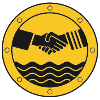
A Welfare Board is a committee or forum that works to support and improve the welfare of seafarers. It provides a forum where people from organisations that deal with the welfare of resident and visiting seafarers can meet to discuss and coordinate their actions. The organisations that normally benefit from Welfare Board representation are as follows: Flag States and Port State Control, Port Owners & Authorities; Ship Owners and their representatives; Coastguard; Unions and their Inspectors, Welfare organisations & Charities and their Ship Welfare Visitors.
A local Welfare Board (Port Welfare Committee) may serve the seafarer’s of one port, or it may cover several ports in different locations. A number of Port Welfare Committees may be organised as part of a national body, known as a national welfare board (NWB).
In accordance with national laws, regulations, conditions and practice and in line with MLC, 2006 Regulations and Guidelines, Welfare Boards can benefit seafarers and the rest of the maritime community as follows:
The men and women who live and work at sea are often away from their families and friends for many months, working long hours at demanding jobs, landing at foreign countries for short periods of time. A rare port visit offers an important opportunity for a seafarer to receive care, to communicate with their families, to see a doctor, to seek advice or visit local shops. Welfare Boards support the welfare providers who provide these services and help improve the lives of seafarers. If you are interested in starting or participating in a Welfare Board message the project team via the Contact Us webpage.